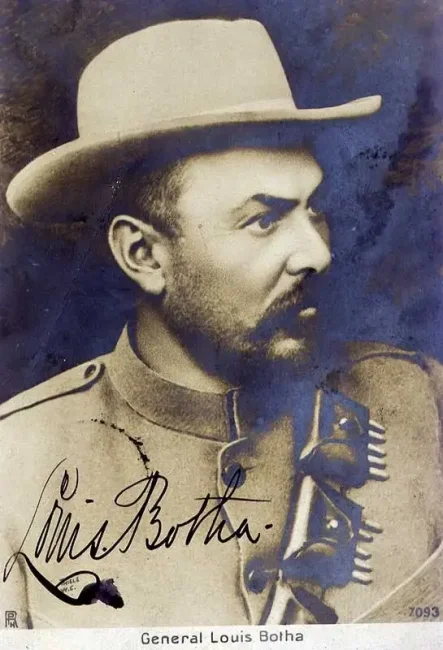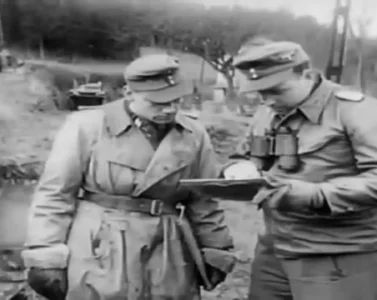- Military History
- Biographies
- Militarians Biographies
- General Louis Botha
General Louis Botha
South African general who led Boer forces against the British
Botha was born near Greytown in Natal and, the son of a farming family, was given very little formal education. He was, however, intensely interested in politics and took part in creating the New Republic around Vryheid in 1884. He settled in that region, becoming field cornet (military leader) of Vryheid in 1894 and gaining election to the Volksraad (parliament) of Transvaal four years later.
By this time, Botha had become a political moderate and pointedly abstained from the vote for war with Britain in October 1899. However, once war was declared, he quickly proved himself a highly able commander.
Botha rose swiftly to the position of second-in-command under General Petrus J. "Piet" Joubert. He performed brilliantly at the battles of Talana (October 20, 1899) and Ladysmith (October 30), both Boer victories. He oversaw the siege of Ladysmith from November 2, 1899, through February 28, 1900, and assumed full command of Boer forces after Joubert was unhorsed and gravely injured on November 23.
He checked Sir Redvers Buller's first three efforts to relieve Ladysmith at the battles of Colenso (December 15, 1899), Spion Kop (January 24, 1900), and Vaal Krantz (February 5-7), but was finally outflanked at Tugela River on February 17-18, and withdrew beyond Ladysmith. He took a stand in the Biggarsberg Mountains along the Natal-Orange Free state border but was pushed out by Buller on May 14, 1900 and defeated by him in open battle at Bergendal on August 27; the final major engagement of the war.
Following the Boer defeat at Bergendal the war took on the character of a guerilla conflict centered primarily in the northeast Transvaal. Botha invaded Natal during September 1900 in cooperation with General Jan Smuts' raid into the Cape Colony. He defeated forces under Lieutenant Colonel Hubert Gough at Blood River Poort on September 17.
Botha was badly defeated at ltala and Prospect, forts on the Transvaal-Zululand border, on September 26, 1901, but he won a narrow victory over G. E. Benson's rearguard at Bakenlaagte in the eastern Transvaal on October 30, 1901. Despite this, Botha's army entered the new year exhausted and ragged.
Botha was among those who attended the peace conference at Vereeniging in May 1902 and signed the Treaty of Vereeniging on May 31, which ended the Boer War.
With the return of peace, Botha returned to politics and resumed his moderate stance. He worked with Jan Smuts on the unification of British and Boer factions that resulted in creating the Dominion of South Africa. Botha was elected the first prime minister of the Union of South Africa on May 31, 1901 and served in this office until his death.
General Louis Botha - Quick Facts
- South African Republic - Transvaal (1852-1877 & 1881-1902)
- South Africa Transvaal Colony (1877-1881 & 1902-1910)
- Union of South Africa (1910-1961)
- British Imperial Armies
- Transvaal Commandos
- Second Boer War (11 October 1899 – 31 May 1902)
- WWI (1914-1918)
- Polish - Soviet War (1919-1921)
- {{#owner}}
- {{#url}} {{#avatarSrc}}
{{name}} {{/url}} {{^url}} {{#avatar}} {{& avatar}} {{/avatar}} {{name}} {{/url}} - {{/owner}} {{#created}}
- {{created}} {{/created}}
























